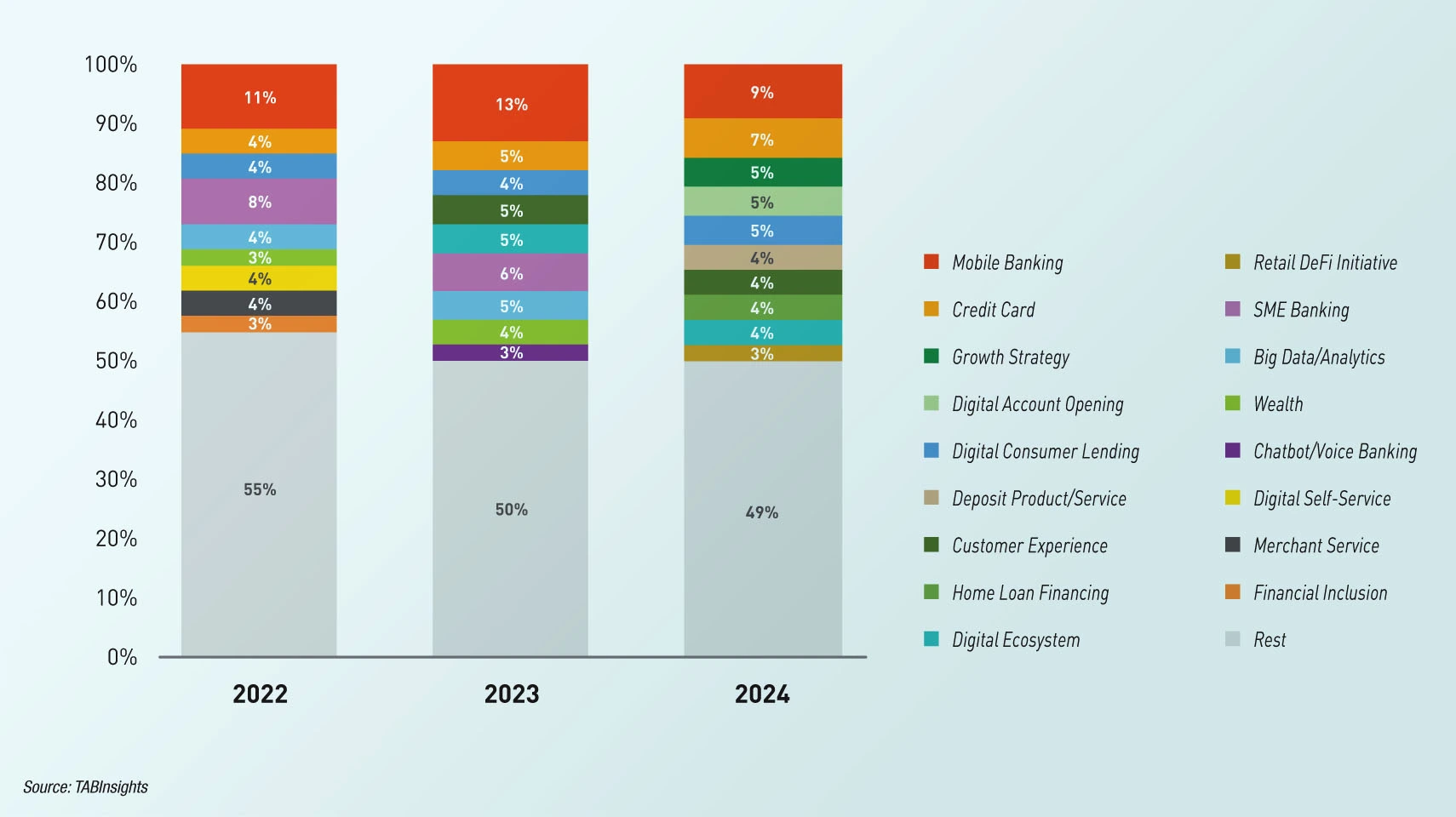The retail finance sector saw a significant shift in 2024, driven by accelerated digital transformation and technological modernisation. Financial institutions are rapidly adopting advanced technologies to streamline operations, improve customer experiences, and maintain competitiveness. Key learnings from this year's programme highlight the crucial role of digital integration, AI-driven solutions, collaborative platform ecosystems, and innovative business models in shaping the future of retail finance.
A central theme this year is the critical importance of digital integration and automation. Banks are leveraging artificial intelligence (AI), machine learning, and robotic process automation to optimise operations. These technologies enhance efficiency and enable the delivery of personalised services. AI-driven chatbots and virtual assistants are increasingly common, providing customers with instant support and customised financial advice, which helps reduce operational costs and improve service quality.

Advanced analytics is another significant trend. Financial institutions are harnessing big data and analytics to gain deeper insights into customer behaviour and preferences. This data-driven approach allows banks to offer highly personalised products and services, improving customer satisfaction and loyalty. By understanding customer needs better, banks can design targeted marketing strategies and develop products that resonate with customers.
Standalone or digital-only banks have emerged as cornerstones of the digital evolution in retail finance. The widespread use of smartphones and internet connectivity has made mobile-first and cloud-native digital banks accessible to a broader audience. New digital-only banks are investing in robust mobile platforms that offer a wide range of services, from basic transactions to complex financial planning and wealth management services. Collaborations between traditional banks, fintech companies, and e-commerce platforms are also accelerating innovation through consortia-based digital banks. These partnerships enable digital-only banks to integrate cutting-edge technologies, expand service offerings, enhance user experience, and scale customer acquisition and business volumes.
As digital transformation accelerates, cybersecurity and data protection have become paramount. The increase in digital transactions and online banking activities has heightened the need for robust security measures. Banks are investing heavily in cybersecurity infrastructure to protect sensitive customer data and prevent fraud. Advanced encryption techniques and multi-factor authentication systems have become standard practices for ensuring data security and building customer trust.
Cloud computing plays a pivotal role in modernising banking infrastructure. By adopting hybrid cloud-based systems, banks aim for greater flexibility, scalability, and cost-efficiency while eliminating obsolete legacy systems. Cloud solutions and microservices-based system architecture also facilitate the adoption of application programming interfaces for open banking, fostering a more collaborative ecosystem, and driving innovation.
Sustainability is another area where technology is making a significant impact. Banks are increasingly incorporating environmental, social, and governance criteria into operations, driven by consumer demand and regulatory pressures. Technological advancements are enabling the development of green financial products such as eco-friendly loans and sustainable investment options, aligning financial portfolios with global sustainability goals.
The 2024 Excellence in Retail Finance programme underscores that the future of retail finance lies in accelerating digital transformation and technological modernisation. By integrating advanced technologies, embracing an agile organisational structure, culture, and processes, prioritising cybersecurity, and fostering fintech collaborations, banks are poised to enhance customer experiences and drive innovation. As these trends continue to evolve, they will shape the landscape of retail finance, ensuring it remains dynamic and responsive to changing market needs.




All Comments